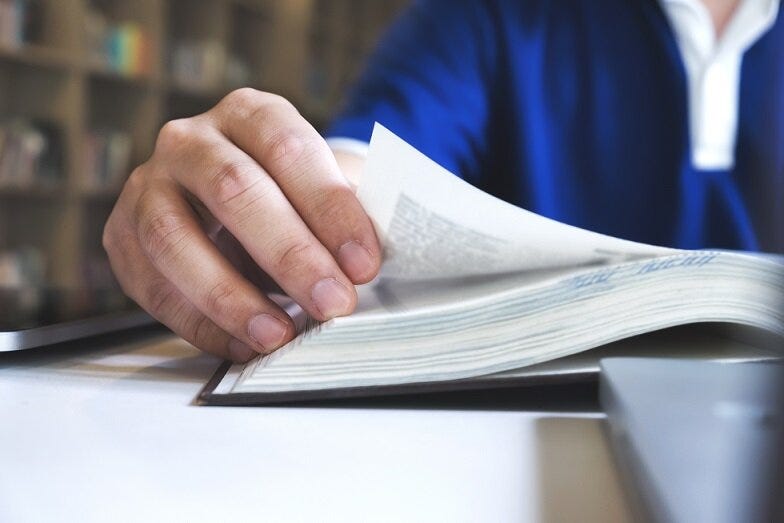Favourite exam technique: Reading through the exam paper
Many marks are won and lost by the strategies your teen employs in the actual exam. Here is one not to overlook.
I would never say that getting good grades at high school is easy — it takes a lot of work; a lot of time sitting at your desk putting in the hard yards; a lot of focus and determination.
BUT — what your teen needs to do when they're IN THE ACTUAL EXAM, to get the most out of all of the hard work they have put in, is often simple.
The exam technique I’m talking about today is super simple, yet so effective for setting your teen up for a smooth sailing exam, and it’s simply this: Skimming through the exam paper BEFORE they answer a single question.
Picture the scene: Your teen is sitting at their exam desk, waiting for the exam adjudicator to give the much anticipated "You may begin" instruction as the clock strikes the hour.
Feeling the time pressure, students often turn the page frantically to start answering the first question.
But it's that time pressure which is precisely why your teen needs to use their time as wisely as possible. Reading through the ENTIRE exam paper briefly before they write anything will allow them to do exactly that.
Why this technique works:
It warms up your brain. I know that sounds like the least scientific statement ever, but hopefully you get what I mean. You wouldn't want to start a high intensity workout without a warm up, and sitting an exam is no different. Skimming over the exam paper before your teen writes anything will help them get into 'the zone'.
It helps plan your time. This. Is. Crucial. How can your teen manage their time in an exam if they don't know what's in the exam? It would be like driving in the dark without your headlights on. You need to know what's coming in order to use your time as efficiently as possible. Your teen needs to know how many questions are ahead, and what TYPE of questions are ahead. The ultimate exam fail is to spend too much time on the first half of the exam only to rush through the second half doing a half-arsed job.
So you know what questions to answer first. Your teen should not necessarily answer their exam questions in the order they appear. To maximize the number of questions answered and the number of marks earned, I used to always answer the questions I could answer relatively easily first, and then come back to any questions I needed to think about. If your teen has skimmed through the exam paper at the beginning of the exam, when they hit a hard question they're not quite ready to answer they will know that there's an easier question over the page, so they can answer that first and then come back to the harder one.
And as mentioned already, your teen's brain will 'warm up' as the exam goes on, and they should find that they're more able to answer the harder questions once they're in the swing of the exam — once they're 'in the zone'. And while their brain has been 'warming up', they will have made the most of their precious time by answering the easier questions, thereby not missing out on 'easy' marks should they not finish the entire exam.
But won't this take up too much precious time?
If your teen is concerned that reading through their exam paper quickly will take up too much precious time, rest assured they should actually SAVE time by putting this technique to use.
They should only need to spend a minute or so skimming over the questions, and this minute will save many more by making your teen prepared for what's to come — because they'll know how they need to allocate their time to each question.
I can't overstate how much I love this technique
When it comes to exam-day, the hard work is 99% behind you.
Once your teen is sitting the exam, it's about being smart.
Getting the best grade possible requires them to use their time as wisely as possible, and reading over the exam questions before they start writing will allow them to do just that.
Best of luck and thanks so much for reading.
Clare



